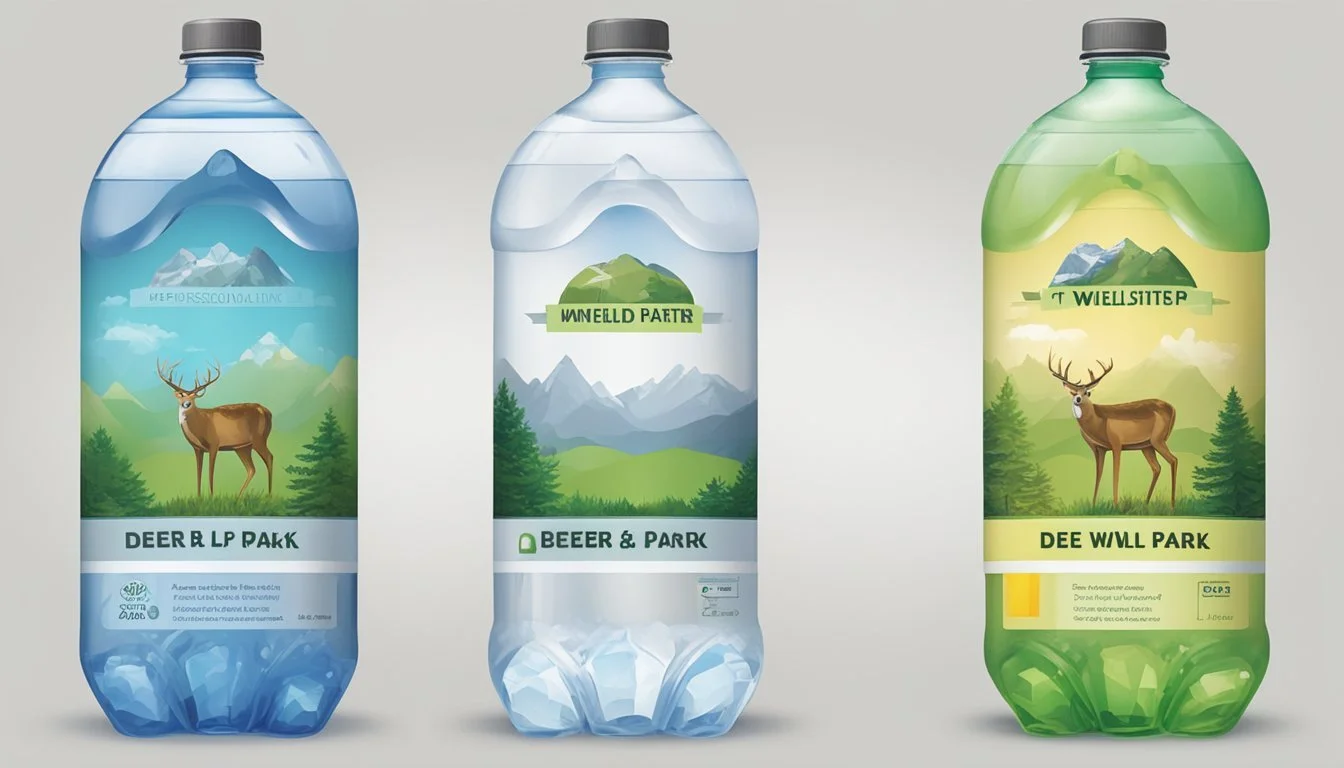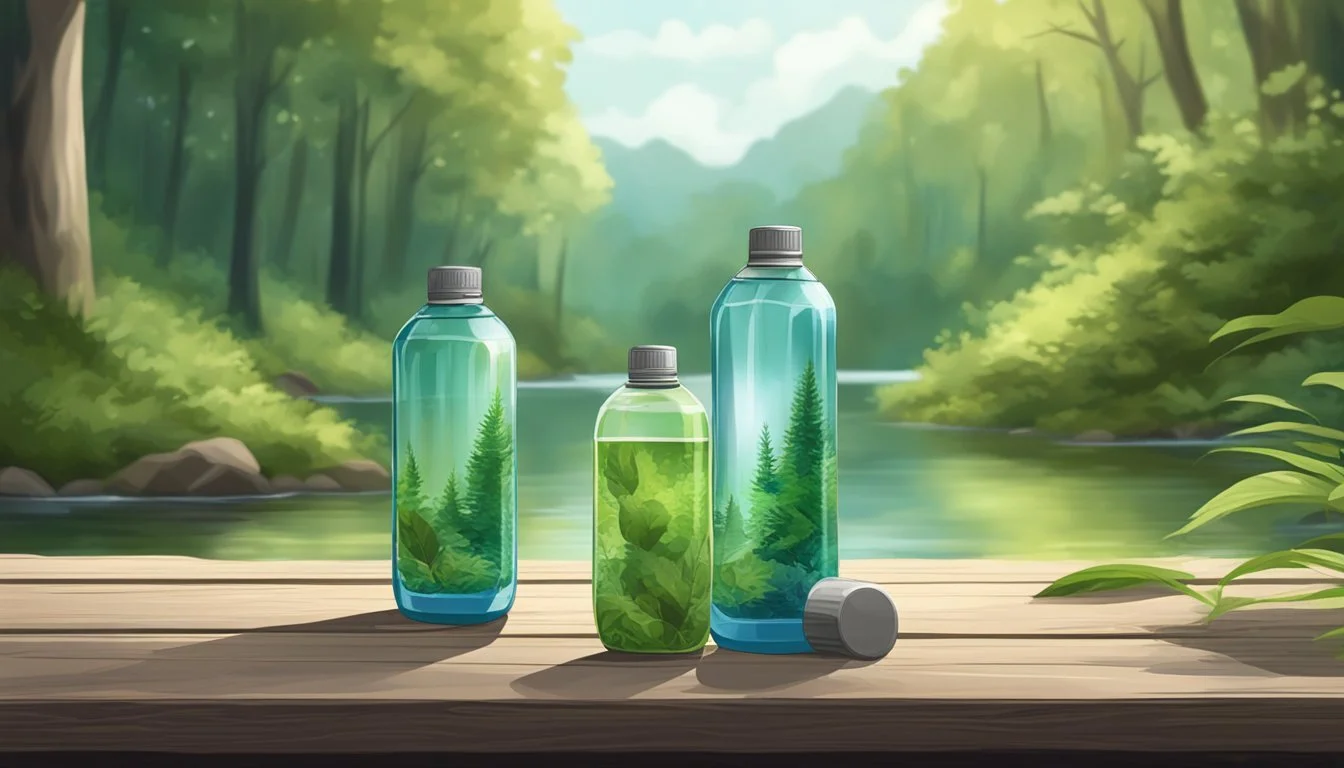Deer Park vs. The Well
Which Bottled Water is Better? A Comprehensive Comparison
Choosing the right bottled water can be a daunting task, especially with so many brands vying for consumer attention. Among the myriad options, Deer Park and The Well stand out due to their distinct characteristics and loyal customer bases. For those who prioritize a crisp, natural taste sourced from the Eastern Seaboard, Deer Park may be the preferred choice.
The Well, in contrast, focuses on purity and environmental sustainability, using advanced filtration techniques to ensure a clean and refreshing taste. This commitment to quality and planet-friendly practices makes The Well an attractive option for eco-conscious consumers. Ultimately, choosing between Deer Park and The Well depends on individual preferences for taste and values.
Each brand has its strengths, with Deer Park offering traditional, natural spring water and The Well championing sustainable, purified water. Understanding these differences can help consumers make an informed decision that aligns with their lifestyle and preferences.
Background on Bottled Water
Bottled water has become an essential commodity, transitioning from a luxury item to everyday necessity. The progression of its industry offers insight into its diverse types and the major brands that dominate the market.
Evolution of Bottled Water
In the early days, bottled water was considered a luxury. Originating in Europe in the 1700s, it gained popularity for its perceived health benefits. Over time, technological advancements allowed for mass production, making bottled water more accessible.
The market witnessed significant growth in the 20th century, with brands like Perrier and Evian pioneering the segment. The late 20th century saw further expansion globally, marked by the entry of major corporations such as Coca-Cola and PepsiCo with brands like Dasani and Aquafina. Today, bottled water encompasses a variety of types including spring, mineral, and purified water.
Bottled Water Brands Overview
A variety of brands dominate the bottled water market, each with unique features. Aquafina and Dasani, produced by PepsiCo and Coca-Cola respectively, are well-known for their purified water. Nestlé Pure Life and Deer Park focus on natural and spring water sources. Evian and Fiji are premium brands, noted for their natural spring water. On the other hand, SmartWater and Essentia emphasize added health benefits with electrolytes and higher pH levels.
The market also includes mineral-rich options like San Pellegrino and Perrier, offering sparkling water varieties. Mountain Valley and Crystal Geyser highlight sourcing from mountain springs in the U.S. It’s essential to understand these distinctions when choosing a bottled water brand.
Terminology in Bottled Water
Bottled water comes in a variety of types, each with specific terms defining its characteristics.
Spring Water: Derived from underground formations that naturally flow to the earth’s surface. Examples include Poland Spring and Zephyrhills.
Mineral Water: Contains minerals and is typically sourced from mineral springs. Notable brands include San Pellegrino and Evian.
Purified Water: Subjected to processes like distillation, deionization, or reverse osmosis to remove impurities. Aquafina and Dasani are common examples.
Artesian Water: Derived from a well tapping a confined aquifer. Fiji is a well-known brand offering this type.
Understanding these terms helps consumers make informed choices based on source and treatment methods.
Assessment Criteria for Water Quality
When comparing Deer Park to The Well bottled water brands, several key quality assessment criteria are essential. These criteria ensure that consumers receive safe, high-quality, and good-tasting water.
Understanding Water Purity and Quality
Water purity refers to the absence of contaminants like heavy metals, PFAS chemicals, lead, and arsenic. High-quality bottled water must be free from these impurities to ensure public health. Deer Park promotes its water as 100% natural spring water, suggesting a high standard of purity. Testing results, such as those from Consumer Reports, can validate these claims by checking for contaminants that align with EPA and FDA regulations.
Safety and Regulation Compliance
Federal government regulations play a pivotal role in bottled water safety. Compliance with EPA and FDA standards guarantees that the water is safe for consumption. Brands like Deer Park adhere to these safety standards by undergoing regular testing to detect harmful substances. The presence of heavy metals and chemicals like PFAS is monitored, ensuring that water quality is maintained at federally mandated levels to protect consumers' health.
Taste Profile Variations
Taste is influenced by the mineral content and purity of the water. Deer Park's natural spring water is known for its clean and crisp taste, attributed to its source and minimal contaminants. In contrast, The Well emphasizes a smooth taste achieved through advanced filtration. Consumers often choose based on these distinct flavor profiles, preferring either the natural mineral essence of Deer Park or the refined taste of The Well. Bottled water's taste can significantly impact consumer preference and loyalty.
Comparing Deer Park and The Well
Both Deer Park and The Well present distinct qualities in hydration, sources, filtration processes, and packaging practices. Each brand holds a unique place in the bottled water market.
Source and Origin
Deer Park sources its water from natural springs located along the Eastern Seaboard of the United States. These springs are known for their pristine, natural environments.
The Well sources its water from underground springs primarily in the western regions, often in states like California and Nevada. They highlight the purity and mineral content from these unique sources.
Filtration and Purification Processes
Deer Park boasts a minimal filtration process to maintain the natural mineral content of their water. This includes basic filtration to remove sediments and then passing the water through ultraviolet light to ensure it is free from pathogens.
The Well employs a more rigorous filtration process. They typically use reverse osmosis combined with ultraviolet and ozone treatments to achieve a high level of purity. This results in exceptionally clean water with a neutral taste.
Bottling and Packaging Practices
Deer Park utilizes plastic bottles made from recyclable materials. Their packaging emphasizes functionality and convenience, with a focus on easy-to-carry designs.
The Well offers a variety of packaging options, including traditional plastic bottles and more environmentally friendly boxed water. Their bottling process emphasizes sustainability and reducing the carbon footprint.
Environmental Considerations
Deer Park has made strides toward sustainability by using recycled plastics and promoting recycling through their packaging. Efforts are also made to minimize their carbon footprint during transportation and production.
The Well goes a step further by offering boxed water options which have a lower environmental impact compared to plastic bottles. They focus extensively on sustainable practices, aiming to reduce waste and utilize eco-friendly materials.
Consumer Accessibility and Convenience
Deer Park is widely available across many states, particularly in the East. Its competitive pricing makes it an accessible option for many consumers.
The Well may not have as widespread distribution as Deer Park, but it is available in many health-conscious and specialty stores. They often command a higher price due to their premium filtration process and sustainable packaging options.
Additional Factors
When comparing Deer Park and The Well bottled water, nutritional content and health benefits, along with expert opinions and reviews, are crucial.
Nutritional Content and Health Benefits
Deer Park prides itself on being 100% natural spring water, sourced from springs along the Eastern Seaboard. The Well, on the other hand, emphasizes its rigorous purification process to deliver clean and safe drinking water.
Minerals in water like calcium, magnesium, and potassium play a vital role in supporting bodily functions. Deer Park offers a natural mineral composition, beneficial for hydration and overall health. The Well, designed with a purified profile, aims to provide water free from contaminants and impurities.
Electrolyte balance is another aspect to consider. While Deer Park's natural spring water includes essential minerals that act as electrolytes, The Well often undergoes purification and may include added electrolytes to ensure adequate hydration.
Health and safety standards are met stringently by both brands. Deer Park's natural sourcing process ensures a product free from artificial additives, while The Well’s extensive purification removes potential contaminants, making it a safe choice.
The Role of Expert Opinions and Reviews
Expert opinions and reviews significantly impact consumer trust and decision-making. Sources like YouTube and Twitter are popular platforms where water brands are frequently reviewed.
YouTube reviewers often compare taste, quality, and value. Deer Park is frequently praised for its crisp taste and natural origin. The Well receives commendations for its purified, clean profile, which appeals to health-conscious consumers.
Twitter responses provide real-time feedback. Users often highlight Deer Park's refreshing taste and natural qualities. The Well is noted for its purity and consistency, making it a reliable choice.
Opinions from health experts and nutritionists also play a role in shaping public perception. Professionals often weigh in on the benefits of natural minerals found in spring water like Deer Park versus the assurances of purification from brands like The Well.
Final Thoughts on Water Choices
When choosing between Deer Park and The Well bottled waters, factors such as source, pH levels, and sustainability are crucial. Considering both brands' histories and water characteristics can guide the decision-making process.
Making an Informed Decision
Deer Park sources its water from various springs along the Eastern Seaboard of the United States. With a pH close to neutral, around 7.0, it tends to suit those preferring balanced water. The brand's historical roots reach back to just after the American Civil War, demonstrating long-standing reliability.
The Well, positioned as a premium brand, offers water often sourced from pristine environments like the French Alps or volcanic rock in Norway. Such sources can impart distinct mineral profiles and a cleaner taste. Evaluating these sources against Deer Park’s can help consumers decide which aligns better with their taste preferences and health considerations.
Future Trends in Bottled Water
Sustainability and environmental impact are becoming increasingly important to bottled water consumers. Brands like The Well often emphasize eco-friendly practices, including recyclable packaging and reduced carbon footprints. Deer Park, part of Nestle, has also started adopting similar measures to keep up with market demands.
In addition to sustainability, the market is moving towards enhanced waters with added electrolytes or nutrients for health-conscious consumers. Whole Foods and other retailers are pushing these innovations forward, aligning with trends toward wellness and cleaner lifestyles. Monitoring these developments can provide valuable insights into future bottled water choices.
More About Deer Park
Deer Park vs Cascade Mountain: Which Bottled Water is Better?
Deer Park vs Hawaii Volcanic: Which Bottled Water is Better?
Deer Park vs Hawaiian Springs: Which Bottled Water is Better?
Deer Park vs Icelandic Glacial: Which Bottled Water is Better?
Deer Park vs Kirkland Signature: Which Bottled Water is Better?
Deer Park vs Mountain Valley Spring Water: Which Bottled Water is Better?
Deer Park vs Nestle Pure Life: Which Bottled Water is Better?
Deer Park vs Richard's Rainwater: Which Bottled Water is Better?
Deer Park vs Solan de Cabras: Which Bottled Water is Better?
Deer Park vs Talking Rain AQA: Which Bottled Water is Better?
Deer Park vs Whole Foods 365: Which Bottled Water is Better?
Deer Park vs Whole Foods Italian Still Mineral water: Which Bottled Water is Better?
More About The Well
Cascade Mountain vs The Well: Which Bottled Water is Better?
Hawaiian Springs vs The Well: Which Bottled Water is Better?
Icelandic Glacial vs The Well: Which Bottled Water is Better?
Mountain Valley Spring Water vs The Well: Which Bottled Water is Better?
Nestle Pure Life vs The Well: Which Bottled Water is Better?
Richard's Rainwater vs The Well: Which Bottled Water is Better?
The Well vs Kirkland Signature: Which Bottled Water is Better?
The Well vs Talking Rain AQA: Which Bottled Water is Better?
Whole Foods Italian Still Mineral water vs The Well: Which Bottled Water is Better?




